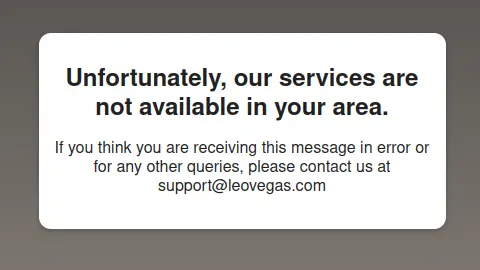VPN usage has significantly increased in recent years as cybercrimes continue to rise in scope and complexity. Internet users commonly rely on this technology to maintain their privacy and protect themselves against malicious third parties snooping on them on public networks.
An increasing number of people also resort to virtual private networks to bypass geographic restrictions and access online content that is otherwise unavailable in their region.
The service masks a user’s real IP address via an encrypted connection, making it look as if they are browsing from a different country.
Virtual private networks are very popular among online gamblers, allowing them to access casino and sports betting sites that are restricted in their countries for regulatory reasons.
But is using a VPN for online gambling legal, and what are the repercussions for those who get caught? Continue reading as we elaborate on this topic.
Why Do Online Gambling Operators Prohibit VPN Use?
It is blatantly obvious most online casino operators disallow virtual private networks despite the fact using such services is not illegal per se. So why the big fuss? The answer to this question again has to do with gambling regulations.
All licensed gambling companies must pursue strict Know Your Customer (KYC) policies in line with the requirements of their regulators. Each registered player must thus undergo obligatory verification to confirm their age, identity, location, and source of funds.
As cumbersome as this procedure is at times, online casinos must always go through with it to prevent any potential legal and regulatory troubles. Customers must provide documents for identification, proof of address, and proof of payment method to successfully pass the test and withdraw their winnings.
Verification is obviously impossible if the person uses VPN services to mask their location because the country and address on their real government-issued ID will not match. VPN usage is disallowed by most online casinos for several primary reasons:
- To hinder the access of players who reside in restricted countries
- To curb multi-accounting and potential bonus abuse
- To prevent irresponsible gaming and hinder problem players from regaining access to gambling services
- To thwart fraud, money laundering, and terrorist financing
It becomes clear online casinos prohibit virtual private networks mostly because they want to avoid getting into hot water with their regulators.
Regulatory failings like providing underage or restricted players with access to gambling are heavily penalized with massive fines, license suspension, or even license revocation.
Few, if any, regulated companies would willingly allow or overlook VPN use at the expense of losing their operating permits and having their reputation tarnished.
Closing Remarks
Verified players traveling abroad should contact the support representatives of their gambling sites to inquire whether they can access their accounts from the respective country they are visiting. Concealing your real geographical location via VPN to feign you are in your country of residence while abroad is rarely a good idea as we saw from the case of Gordon Vayo and PokerStars.
The same goes for attempting to register at online casinos from a restricted country. They will inevitably catch you, freeze your account, and confiscate your winnings. You should not forget everything that is already illegal remains illegal whether or not a person is using a virtual private network. We recommend you refrain from using a VPN to access online casinos if the laws in your jurisdiction prohibit remote gambling.
